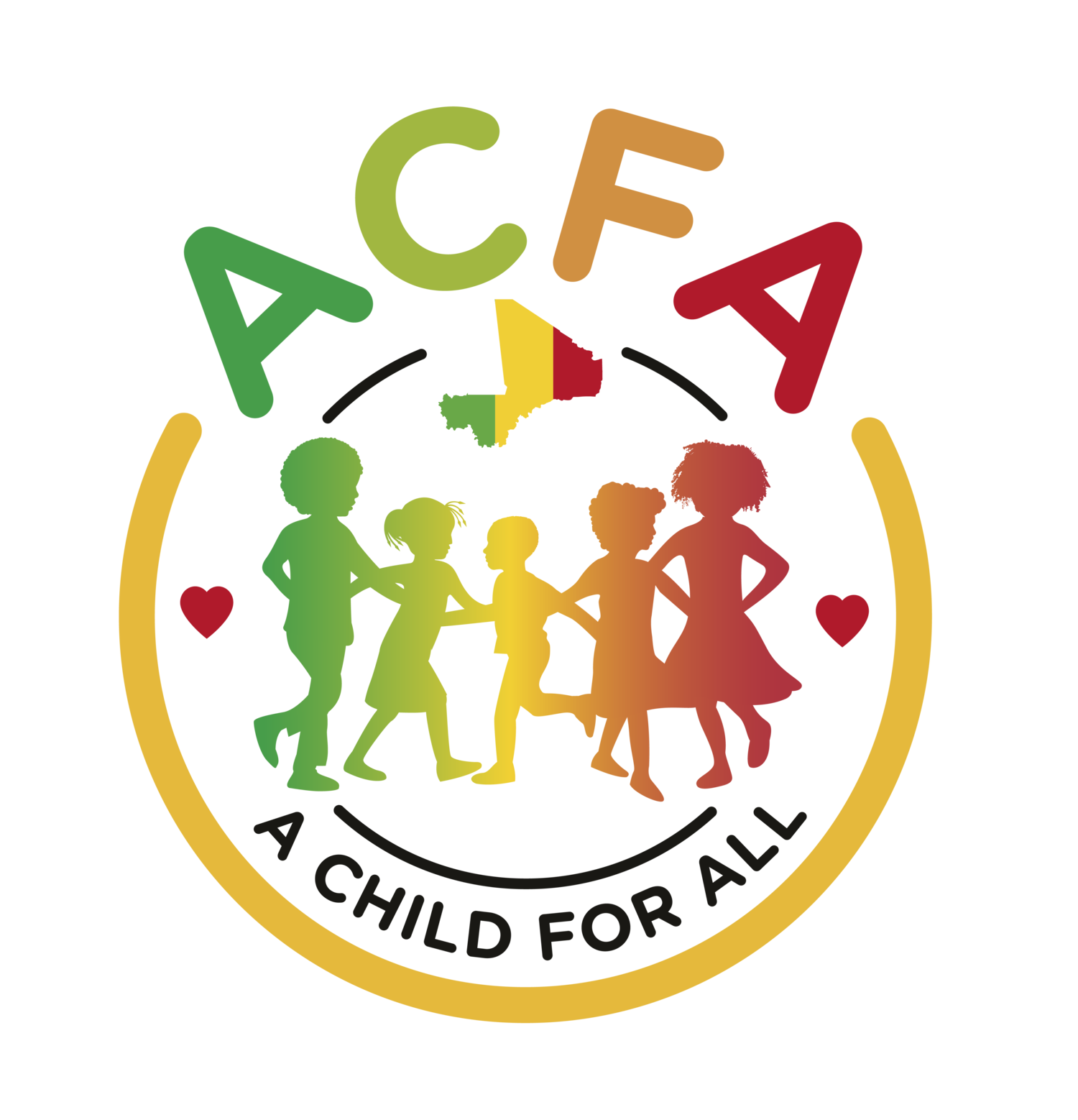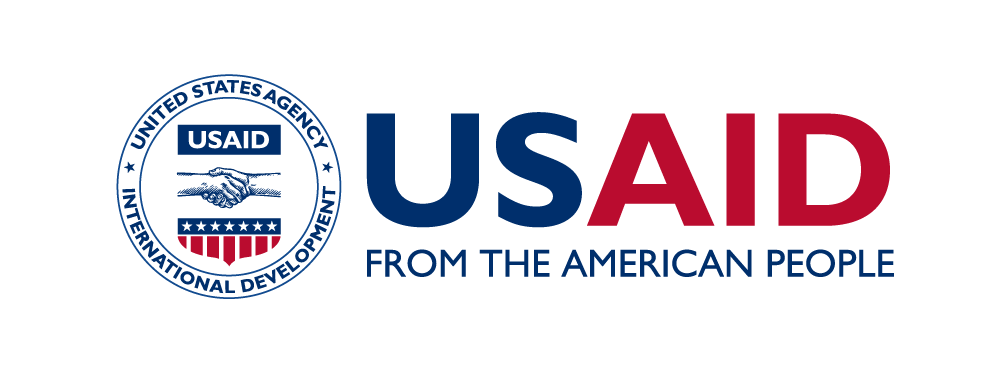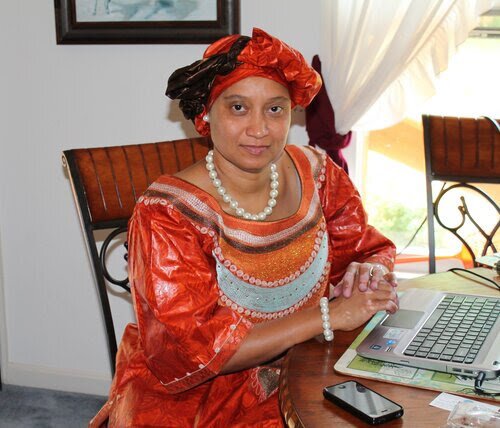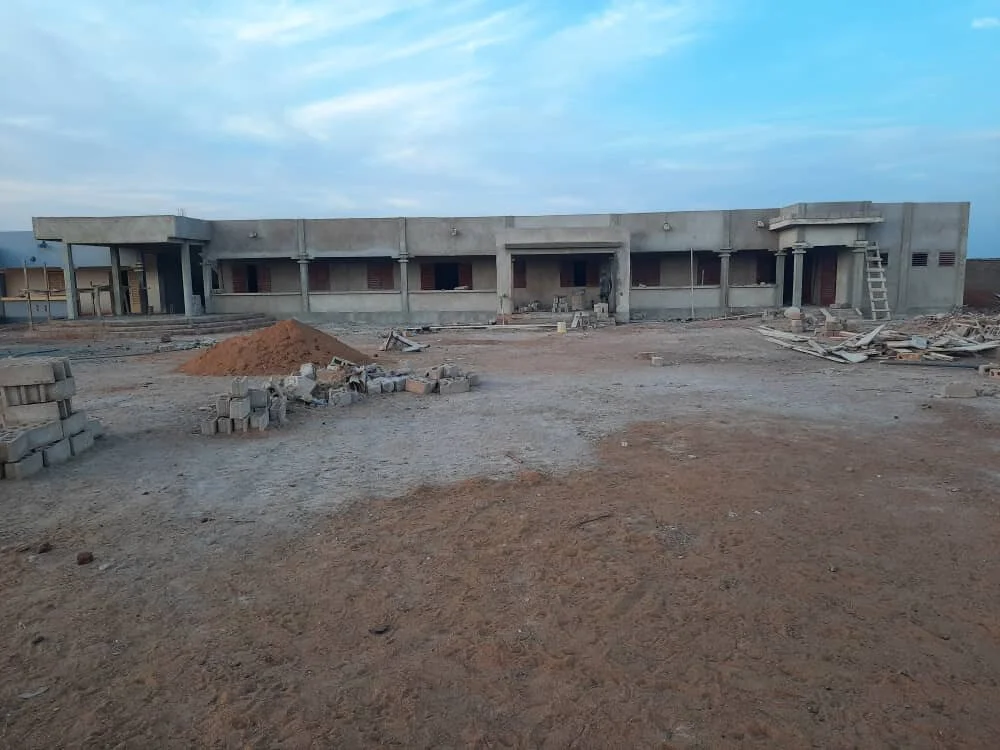USAID ASHA Partner Profile: Kadiatou Sidibe
We are very proud to share this noteworthy profile about our CEO and Founder, Kadiatou Sidibe, which was featured in the newsletter of our partner, the USAID American Schools and Hospitals Abroad Initiative. Read about Kadiatou’s story and comment on your favorite part of ACFA’s history.
Kadiatou Sidibe, Founder of A Child for All
Idée fixe. There’s no other way to describe it. Kadiatou Sidibe’s curiosity - and concern - about the ragged children begging on the streets of Bamako never left her. And it grew into an idée fixe – but it took a few decades before the Malian-American could act on what became an obsession.
She first saw those children – some her age or older or younger – as her father drove Kady and her brother to school on his motorbike. She wanted to know: why weren’t those kids going to school, why were they begging? Why were they dirty and ragged and hungry? Why, why, why?
As she grew older, she began to understand that certain conditions had to be in place for a child to attend school. Parents had to be able to afford to send their children to school. School fees were one barrier. But even before that, there had to be a roof over one’s head, food on the table, clothes to wear – and most basic: parents to care for you.
Kady says her father was a model of altruism, “He was a teacher and teaching was his passion.” Sometimes, on his own, he taught older children who had never attended school, giving them an education at his own expense. For students who were held back in a class, he would devote summers to teaching them and their school would test them the next academic year before school started. If the students passed they would go to the next level. This prevented numerous vulnerable children from having to stay back a year and retake a class.
A turning point in Kady’s life came when she was eleven and her father went overseas to earn a doctorate. In the three years that he was away, Kady and her brother were cared for by an aunt, a woman whose circumstances were very different from what the children had known.
Kady had to hand-wash her own and others’ clothes, make six, one-mile trips every morning to fetch water in 8-gallon containers; pound ginger with lemon to make Malian ginger ale and transport it to sell at the market; walk two miles to and from school in 90-degree weather; cook on a wood-burning stove in a smoke-filled kitchen. All of these chores made it impossible for Kady to focus on her schoolwork. The result: she was held back a year in school.
When her father returned, Kady could again focus on her schoolwork and with his guidance, she graduated high school with the highest GPA in the country. And she had learned that in order to thrive, a child must be well-fed and healthy and have time to study. But perhaps the most important lesson was this: “I experienced how the lack of parental love and guidance can be emotionally and mentally detrimental to a child. It has long-lasting impacts that are often carried into adult lives.”
A few years later, Kady immigrated to the United States and joined the U.S. Navy. Her goal was to start a non-profit organization after retirement. With that in mind and while still serving in the Navy, she earned an MBA in Non-Profit Management at George Washington University. But thoughts of ragged children begging - under a broiling sun on the streets of Bamako - never left her. And she thought, “I couldn’t look into the eyes of a vulnerable child and tell the child to wait for me. Their lives certainly don’t wait for my retirement.” Thus “A Child for All” (ACFA) was incorporated in 2008, as Kady was in the final year of the MBA program – and still serving in the Navy.
The financial crisis of that year made fund-raising difficult; by January 2010 ACFA had a Board of Directors but less than $5,000 in the AFCA account - not anywhere near enough to take in children. So Kady turned to her father who agreed to donate his house in Bamako to be used as a home for vulnerable children. He moved to his farm and Kady began renovating the house in town. The house where she had grown up became Bamako Children’s Home for ACFA and welcomed 12 children in June 2010. Today those children are in their teens and are thriving and still call the house, “home”.
AFCA currently serves 18 vulnerable children and has outgrown the first home. In 2013 ACFA began construction of the Zorokoro Children’s Complex which, when finished, will consist of a dormitory for 100 children, a dining facility, a medical clinic, a library/computer lab and a school for children from kindergarten to 9th grade. Today, the first part of the dormitory is open with children ages 3-5 years old living there and the first three classrooms of the school are open for kindergarten classes. The goal is to serve all 100 vulnerable ACFA children while also providing opportunities to children and families in neighboring villages with education, health care, nutrition, and income-generating activities.
ACFA resident does her homework
ACFA staff members and students
Once completed, this school building will house 12 classrooms. Funding for 6 classrooms has been secured. In the meantime, AFCA is working on finding funds for the remaining classrooms. The recent ASHA award will fund the purchase of books, computers, shelving, printers, scanners, tables & chairs, office furniture, WiFi access, and solar panels to power the library.






